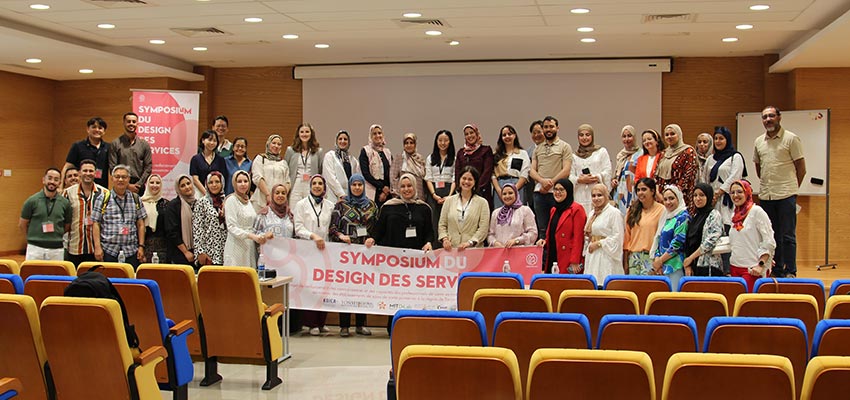
Arriving in Morocco: a traveler's diary
It's early June, and I just arrived in Northern Morocco with a team from MIT D-Lab, excited to run a Maternal Healthcare Symposium. After months of planning, we will embark on a mission to make a positive impact by facilitating a symposium that brings doctors, midwives, nurses, and mothers together to enhance maternal healthcare in the region. The symposium is split into two parts: the first involves interviews with previous patients to hear their stories. These personal accounts will provide valuable insights into women's struggles when seeking care. We will then work closely with dedicated healthcare professionals to brainstorm solutions and create implementation plans during the second part.
This project journey began in the fall of 2022 when I took the D-Lab: Gender and Development class at MIT, which profoundly impacted me and sparked an interest in the connection between public health and gender inequality as it relates to city planning. This new interest moved me to extend the work into an independent project for my final spring semester. As a city planner interested in public health, I look forward to unraveling the complex structures that hinder individuals from accessing quality healthcare, including regional disparities, transportation, and public policy limitations. Each day in Morocco, I hope to meet incredible people, listen to inspiring stories, and witness the impact of the D-Lab collaborative process.
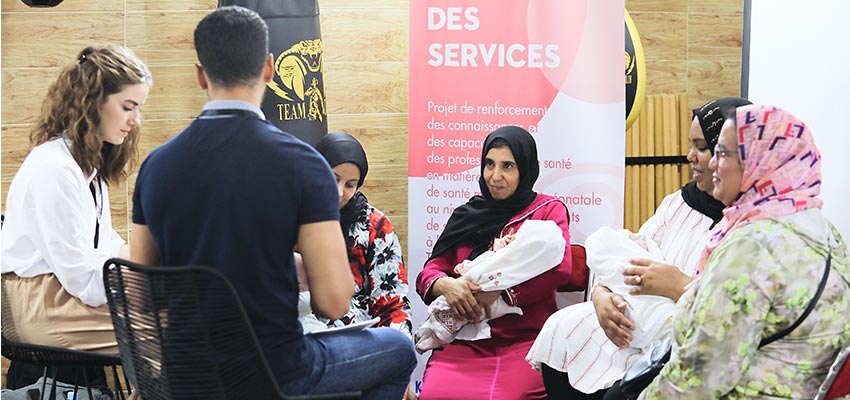
Project goal for the Maternal Healthcare Symposium in Morocco
The project focused on improving maternal healthcare access in Morocco, specifically the TTA region, which includes Tanger, Tetouan, Al Hociema, and Chefchaouen. The project's main objective was to identify key challenges and barriers women face when accessing maternal healthcare throughout the full cycle of prenatal/antenatal care, intrapartum care, post-partum/post-natal care, and newborn care. The main questions are:
- "How can we reduce the maternal mortality rate and improve maternal health service in the TTA region by focusing on patient-centered care?"
- "How can we reduce regional health disparities?"
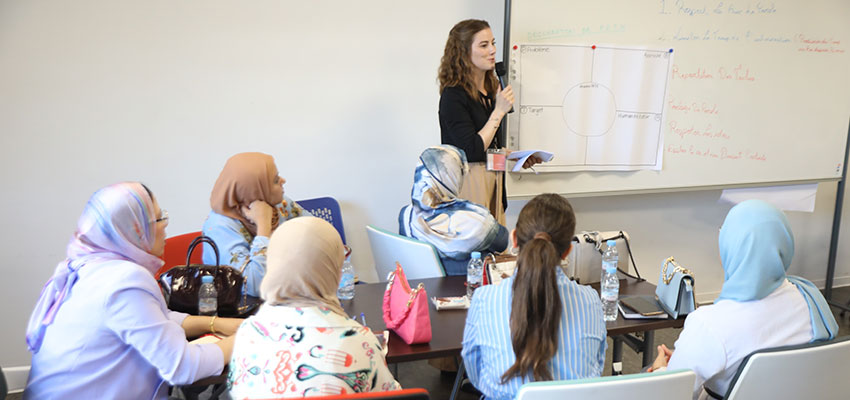
Meet the MIT D-Lab facilitation team
The MIT D-Lab facilitation team consisted of three students that worked on the project in the Fall of 2022 during the class D-Lab: Gender and Development. The team consisted of Junhee Kim, a bachelor in International Relations Political Science from Wellesley College; Emilie Litsas, MBA, Master in Public Policy candidate from Harvard Kennedy School; and me, Samantha Lewis, Master in Urban Planning from Harvard University. The class was taught by Libby McDonald, lecturer at MIT D-Lab, and Professor Sally Haslanger, Ford Professor of Philosophy and Women's and Gender Studies. Our project advisor was Megha Hegde, Research Associate at MIT D-Lab, who helped edit the curriculum and facilitation activities.
Meet the project management team and partners in Morocco
MIT D-Lab collaborated directly with Professor Sangchul Yoon, MD, Ph.D. in Public Health, an Associate Professor at Yonsei University, who was our main contact point. D-Lab was responsible for conducting workshops for applying patient-centered service design in Primary Health centers. Our role was a portion of the main project called "Projet de santé maternelle et néonatale," a five-year partnership between KOICA, Yonsei University, and the Moroccan Ministry of Health. The research project aims to develop and implement health capacity building, including education modules on the e-learning platform, offline team-based learning training, and online training for government officials and delegations.
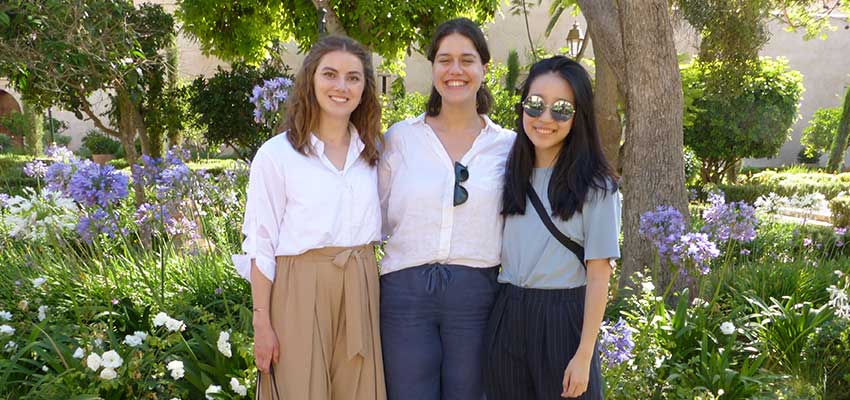
Unraveling Morocco's maternal health challenges
Launching this maternal health project is important, given Morocco's current focus on redirecting resources to healthcare and integrating women's voices into national development. Yes, Morocco has drastically reduced its maternal and under-five mortality rates over the past three decades, but these rates remain high compared to other developing countries. The rate started to decrease in the 1970s when the Moroccan government introduced national health policies and action plans to address pregnancy, emergency obstetric care, and children's health. These initiatives led to newly built health facilities and expanded access to "free care for all."
Despite significant improvements, there are still large disparities in individuals accessing healthcare depending on their geographic area, socioeconomic status, and social exclusion. For example, a single mother living in a rural area with a lower socioeconomic status will have poor access to delivery assistance and health education. The symposium provided a platform to identify the crucial systemic barriers and the levers of change from a patient's perspective, such as adding training for healthcare professionals, providing women's sex education programs, implementing policy reform, and requiring reporting and monitoring systems.
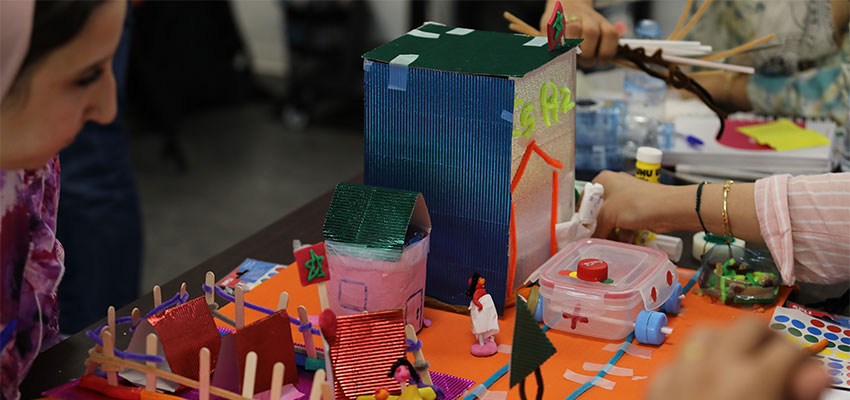
Part 1: Gathering stories from mothers and previous patients
During the first week, we dedicated two days to interviews with previous patients who had experiences in public and private health clinics. Interviewing previous patients allowed us to learn from them and identify the main challenges of accessing care and an understanding of the quality of care during their motherhood experience. We immersed ourselves in the lives of the mothers and children by engaging in heartfelt conversations to hear their stories. Sitting with many strong women, we were offered a glimpse into their pregnancy, childbirth, and post-natal care journey.
Among the strong women, I met Arwa (name changed for privacy), a single mother raising three children. Her journey involved one at-home birth and two deliveries in two different clinics. Arwa had trouble finding a taxi to take her to the hospital for delivery and suffered from a lack of transparent information during a last-minute c-section. Through these interviews, we encountered a tapestry of similar stories woven with personal tales of struggle and resilience. Common threads emerged, such as limited resources, a lack of information, inadequate interpersonal training for healthcare professionals, and a shared vision for a brighter future.
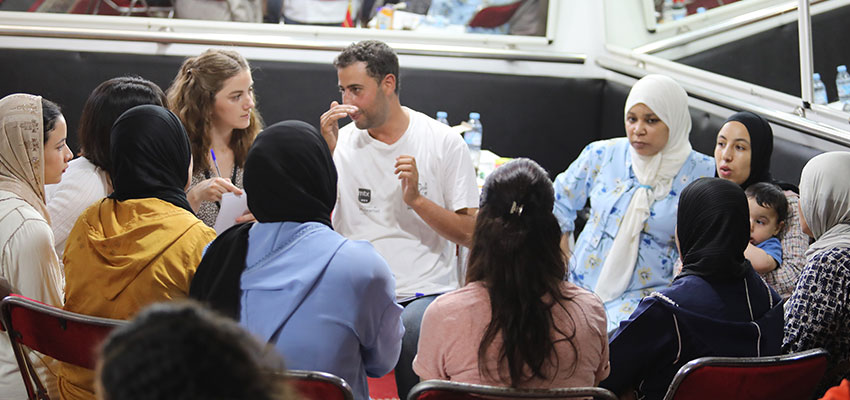
Part 2: Facilitating a symposium with healthcare professionals
During the second week, we facilitated a three-day symposium with healthcare professionals, including doctors, nurses, and midwives. We worked with healthcare professionals to identify patients' primary challenges in accessing care, create solutions for the identified problems, and develop action plans for implementing the solutions. Given the diverse backgrounds and regions of the providers, we focused on creating a collaborative and safe environment that encourages providers to feel comfortable sharing feedback and opinions. We facilitated team-building activities where participants built physical models from craft supplies. For example, one team constructed a mobile care unit to reach difficult-to-access rural areas in Chefchaouen. The solution was a mobile care unit aimed to provide timely care for mothers experiencing obstetric emergencies, who would originally have to travel hours to receive care.
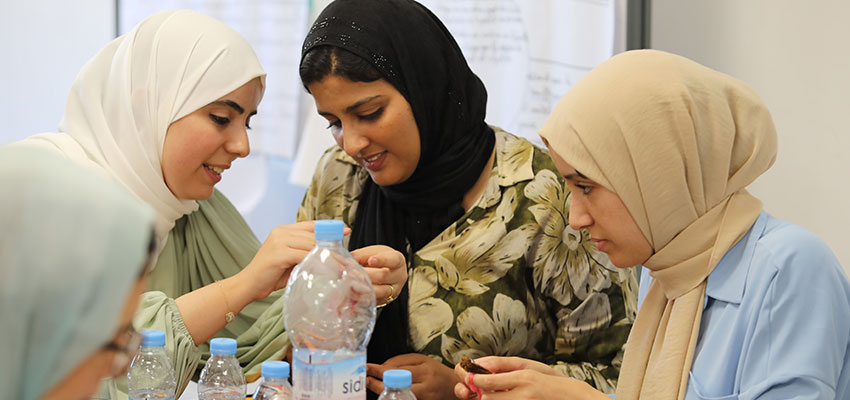
Celebrating powerful women in morocco: my reflections
After the symposium, I traveled to Marrakech and Rabat to see other areas of Morocco. While in Marrakech, I discovered the Musée de la Femme (Women's Museum) and stepped inside, hoping to find more information on the history of women's health and gender rights. I was happy to learn more about Morocco's long history of women artisans, craftworkers, and resilient leaders, who played a pivotal role in shaping a traditionally male-dominated society. The stories of women like carpet weavers and painters (Hafida Zizi), Feminist sociologists (Fatima Mernissi), and journalists (Malika el Fassi) left me intrigued because they significantly impacted national development on social, political, economic, and cultural levels. Throughout this journey, I was inspired by the women that devote their lives to improving women's conditions in Morocco, whether as a midwife providing quality healthcare to mothers or a textile artist expressing her daily struggle through weaving.
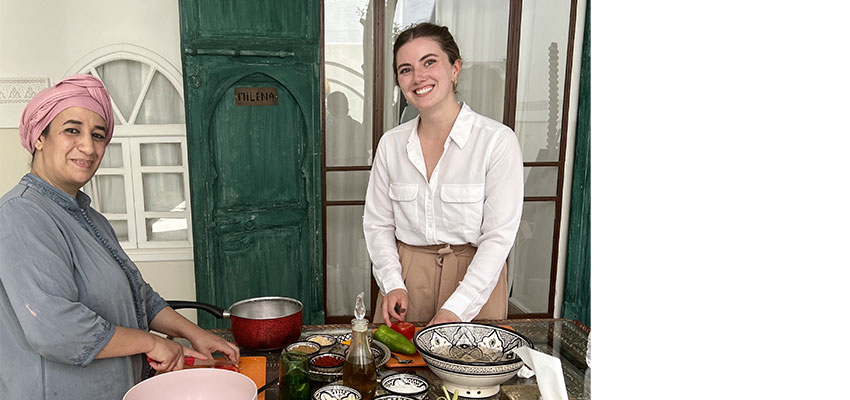
Gender inequality and women's health: my reflections
Reflecting on my time in Morocco, I am in awe of the remarkable women I met, from a brave mother-of-two that dealt with a frightening emergency c-section, to a determined midwife who wants to build a sex education program in schools for young females. Witnessing the collaboration among people and multiple organizations from three countries, Morocco, Korea, and the United States, was truly inspiring. Working on this project was a thrilling opportunity to work in public health, and I look forward to seeing the impact on the TTA region and the nationwide ripples it creates. Throughout my journey, I realized that improving women's health in Morocco requires unraveling the knots that hinder progress and mending the barriers to accessing care. Like a complex woven tapestry of colors and patterns, women's healthcare involves intricate aspects such as reproductive rights, sex education, empowerment, mental wellness, and access to quality healthcare. As Morocco continues to improve maternal health, we must not forget the patient stories we've heard, and we must keep listening to the untold stories that will shape future generations.
This project was supported by KOICA (Korea International Cooperation Agency), Yonsei University College of Medicine, Yonsei Institute for Global Health, Global Care (Medical NGO), Ministère de la Santé et de la Protection Sociale (Ministry of Health and Social Protection), ENSP (Ecole Nationale de Santé Publique) National School of Public Health, Harvard T.H. Chan School of Public Health, and MIT D-Lab.

